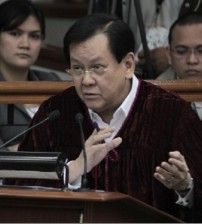MANILA, Philippines – Senator Sergio Osmeña III wants to include tax evasion as one of the predicate crimes in the Anti-Money Laundering Act (Amla) to improve the country’s “gray” list standing with the Financial Action Task Force (FATF).
Osmeña said that the proposed amendments to the Amla, which included adding nine predicate crimes and the monitoring of 23 additional activities, have been very difficult in its passage because of the many objections of lawmakers.
“The tax evasion will always be the most contentious predicate crime. Because with predicate crime, you can freeze the account,” Osmeña told reporters in a briefing Monday.
“With a covered activity, you don’t freeze the account. It’s the responsibility of the jeweler or real estate broker to report. But you don’t freeze [an] account because of that. With [tax evasion], it can be used as an excuse to freeze the account,” Osmeña added.
The debates on the floor regarding the amendments to the Amla have been intense, with many lawmakers resisting because of the inclusion of tax evasion and the inclusion of the real estate sector among the covered activities, Osmeña said.
Osmeña said that “one of the biggest money laundering activities in the country is buying real estate. The big drug dealers buy real estate all over…they’ll buy in Cebu, Davao, in Zamboanga. Then after one or two years, they will sell it and it becomes legal.”
“That’s why in all countries, real estate dealers are covered. They must report … transactions exceeding $10,000 or P420,000 … to the Anti-Money Laundering Council,” Osmeña said.
Through this reporting, the AMLC will be able to see if someone was buying properties all over the country within a span of time. The land registration authority of a certain region would not be able to notice such transactions because it is spread out, Osmeña said.
He added that he remembers three or four people who keep complaining about the bill. Osmeña said he threatened to name them should the FATF put the Philippines in the black list of countries that fail to meet international standards in the fight against money laundering.
The FATF has recently kept the country in the “gray” list of countries along with 20 others that are working to strengthen laws on money laundering.
“The FATF decided to keep the Philippines in the gray list and to strongly encourage the Philippines to enact pending legislative amendments,” Bangko Sentral ng Pilipinas Governor Amando Tetangco Jr. had said regarding the FATF’s classification of the Philippines.
